Blog
Florida Supreme Court Ruling is a Major Win for Property Insurance Consumers
Lobbyists for the Florida property insurance industry are continually trying to curtail access to public industry adjusters for policyholders by convincing lawmakers to pass all sorts of restrictive laws. In a long-standing case that had reached the Florida Supreme Court, policyholders finally won the right to be solicited within the first 48 house after a damaging event by public insurance adjusters. According to The Florida Association of Public Insurance Adjusters (FAPIA), this is a victory for consumers throughout Florida.
This has been interpreted as agreement by the Supreme Court with the FAPIA position that the ban on solicitation is a violation of public adjusters’ constitutional rights of free speech. The case involved a lengthy court battle that began in 2008 when the Florida Legislature approved the ban, which was to be implemented and enforced by the Florida Department of Financial Services.
Policyholders were being barred from being contacted by public adjusters either directly, or indirectly during the first 48 hours after an event such as a hurricane, tornado or sinkhole that triggers an insurance claim. Because public insurance adjusters play such an important role for many policyholders after they incur such a loss, this is seen as a major victory. Public insurance adjusters often obtain larger settlements from insurance companies as well as helping their customers to avoid other problems that could delay the settlement of an insurance claim.
The original language of the law disallowed contact of the policyholder by a public insurance adjuster, unless the contact was initiated by the insured/claimant. After advocate groups, including FAPIA, began to fight back, in October 2009, public adjuster Frederick W. Kortum filed a suit asking the court to declare the law unconstitutional because, among other things, it violated his constitutional rights of free speech and equal protection.
On July 5, 2012, the Supreme Court agreed that the ban was a restriction on constitutionally protected commercial speech, thereby striking down the ban, which was held as unconstitutional.
Because public adjusters can now legally offer their services to policyholders, they can help to reduce the risks of errors that the claimant might make that would prove detrimental to that person’s ability to recover a settlement.

